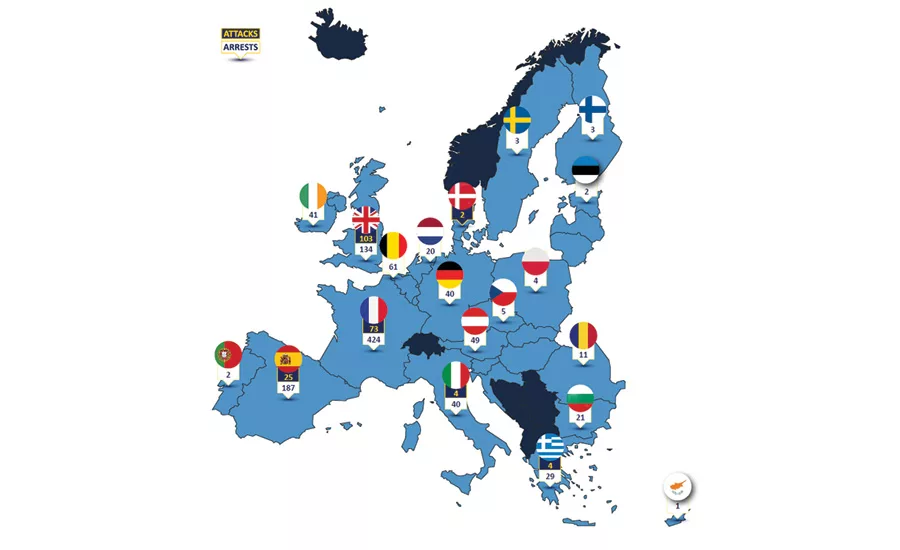Europeans Call for Increased Action on Terrorism

Terrorist attacks and arrests in the EU in 2015. Image courtesy of Europol
The European Police Agency Europol released its annual terrorism trend report on July 20. In 2015, 151 people died and over 360 were injured as a result of terrorist attacks in the EU – numbers that will likely be eclipsed by 2016 statistics. Six European Union (EU) member states faced 211 failed, foiled and completed terrorist attacks in 2015. 1,077 individuals were arrested in the EU for terrorism-related offences, of which 424 were in France. 94 percent of the individuals on trial for jihadist terrorism were found guilty and prosecuted.
The report, known as TE-SAT 2016, stresses that lone wolf attacks remained a favored tactic by the so called Islamic State group and Al Qaeda. Two worrying developments were outlined: the overall threat has been reinforced by the substantial numbers of returned foreign terrorist fighters that many EU countries now have on their soil, and the significant rise in nationalist (xenophobic), racist and anti-Semitic sentiments across the EU, each resulting in acts of right-wing extremism.
The report also spotlights the fact that a significant percentage of all foreign terrorist travelers in Syria/Iraq are now female.
2015 was a year of legislative change for EU member states. In order to strengthen the fight against terrorism, 12 Member States either adopted new laws or amended the existing legislation.
Eighty-two percent of Europeans want the EU to do more to counter terrorism in Europe, according to a Eurobarometer poll commissioned by the European Parliament. The survey also showed that the majority of people think the fight against terrorism should be the EU’s main priority. Respondents considered the following measures to be the most urgent: fight against the financing of terrorist groups (42 percent), fight against the roots of terrorism and radicalization (41 percent) and strengthening border controls (39 percent).
In November, the European Parliament adopted a resolution on preventing radicalization online and in prisons through education and social inclusion. In May it approved additional powers for Europol, the EU’s law enforcement agency. For example, the agency will now be able to ask Facebook to remove pages run by the Islamic State group.
The parliament is also currently working on a new directive aimed at criminalizing preparatory acts for terrorist purposes such as travelling abroad, providing or receiving training, and on a regulation to systematically check all EU citizens entering or leaving the EU.
Looking for a reprint of this article?
From high-res PDFs to custom plaques, order your copy today!




